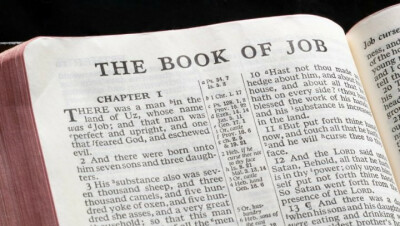
I first heard the story of Job when I was 12 years old. When God spoke directly to Job, that really stuck with me, and to this day the mention of Job’s story catapults me right into chapter 38:
Then the Lord answered Job out of the whirlwind, and said…
“Where were you when I laid the foundations of the earth?
Tell Me, if you have understanding. Who determined its measurements?
Surely you know!
Or who stretched the line upon it?
To what were its foundations fastened?
Or who laid its cornerstone, when the morning stars sang together,
And all the sons of God shouted for joy?” Job 38:1-7
Then on and on in the whisperings of the whirlwind, Job was questioned about his comprehension of the mysteries of God…knowledge that none of us could ever attain…how He determined the boundaries of the sea and land, sun, moon and stars, the courses of nature and all creation, what we can see and all that we don’t see because our human perspective is limited. God challenged Job to take His place and use his own wisdom to uphold all of creation. In my every reading, each time Job is rebuked for challenging God to justify His ways, so am I.
It’s clear from chapter 1 in God’s conversation with satan that God is the one on trial here. We’ve all experienced feeling trapped by life’s circumstances, and when things are unfair, it is normal to look for someone to blame. Eventually that blame often works its way back to God. If He is in control and life is beating us up, how can He be good, wise or just? How can we be people of faith when we live broken lives in a broken world?
Here’s a fancy word and its definition: “Theodicy: Literature that seeks to reconcile God’s justice to the reality of a world where people experience suffering and evil.” That’s a word we never use, but it’s a pretty good explanation of the point of Job’s story in the Bible.
Job was called upon to demonstrate that there is such a thing as faith that’s not motivated by personal gain. When all is stripped away and no hope remains, in our darkest, loneliest and emptiest hours, there is God. That is when faith stands up and is counted. It challenges me to pray for a faith that goes long and tall and deep and wide, to never doubt that God’s perspective is complete while mine is grossly inadequate to comprehend His wisdom, that He loves and cares for me enough to meet my every need.
My second favorite place to dwell in Job’s story is in the closing verses of the book. While God never explains His reason for allowing Job to suffer, we’re encouraged to focus on gaining an understanding of God’s purpose rather than of cause. It’s not a situation where the ends justify the means, but rather a demonstration of God’s providence. “We know that in all things God works for the good of those who love Him” (Romans 8:28).
Finally, the close of Job’s story:
“Now the Lord blessed the latter days of Job more than his beginning; for he had fourteen thousand sheep, six thousand camels, one thousand yoke of oxen, and one thousand female donkeys. He also had seven sons and three daughters. And he called the name of the first Jemimah, the name of the second Keziah, and the name of the third Keren-Happuch. In all the land were found no women so beautiful as the daughters of Job; and their father gave them an inheritance among their brothers.
After this Job lived one hundred and forty years, and saw his children and grandchildren for four generations. So Job died, old and full of days.” Job 41:12-17
About these daughters: Jemimah translates to “dove, a symbol of peace.” Keziah translates as “cassia, a sweet-scented spice.” Keren-Happuch translates to “child of beauty.” In this most ancient of Bible writings, at a time when women in most cultures were seen as mere chattel, Job’s daughters are mentioned by name, and so have been memorialized ever since. It was unheard of in the ancient world for women to be given an equal inheritance with their brothers. I like to think that with the restoration of Job’s health, family and material wealth, his cherished daughters were a living reflection of the peace, inner beauty, and righteousness that characterized Job’s life and surely must have been a blessing to those around him.
Words to Ponder “From where then does wisdom come? And where is the place of understanding?” (28:20) “God understands the way [to wisdom] And He knows its place [for wisdom is with God alone].” (28:23) “But to man He said, ‘Behold, the reverential and worshipful fear of the Lord—that is wisdom;
And to depart from evil is understanding.’” (28:28)
